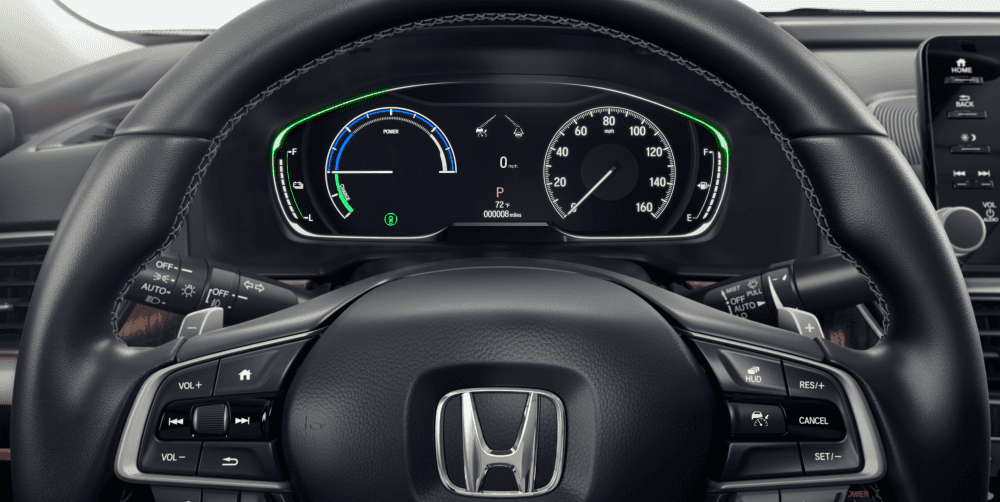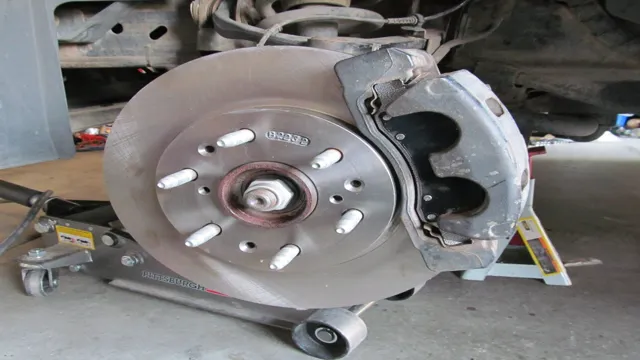Honda Accord Check Engine Light: Troubleshooting Tips
The most common reason for the check engine light in a Honda Accord is a malfunction in the fuel injection system, oxygen sensor, mass airflow sensor, head gasket, emissions control part, or spark plugs. It is important to diagnose and fix the issue promptly to avoid further damage to the vehicle.
However, a flashing check engine light indicates a more serious problem and requires immediate attention.

Credit: www.bramanhonda.com
Common Causes Of Honda Accord Check Engine Light
The Honda Accord Check Engine Light may illuminate due to issues with the fuel injection system, oxygen sensor, mass airflow sensor, head gasket, emissions control part, or spark plugs. Regular maintenance can help prevent these common triggers and keep your vehicle running smoothly.
Malfunction With Fuel Injection System
A common cause of the Honda Accord check engine light is a malfunction with the fuel injection system. The fuel injection system is responsible for delivering fuel to the engine in the proper amount and at the right time. If there is a malfunction in this system, it can cause the check engine light to come on. This could be due to a clogged fuel injector, a faulty fuel pressure regulator, or a problem with the fuel pump. It is important to address this issue as soon as possible to avoid further damage to the engine.Damaged Oxygen Sensor
Another common cause of the Honda Accord check engine light is a damaged oxygen sensor. The oxygen sensor is responsible for measuring the amount of oxygen in the exhaust gases and providing feedback to the engine control module. If the oxygen sensor is damaged or not functioning properly, it can cause the check engine light to come on. This could be due to a faulty sensor or a problem with the wiring. It is important to replace a damaged oxygen sensor to ensure proper engine performance and fuel efficiency.Dirty Mass Airflow Sensor
The dirty mass airflow sensor can also be a cause of the check engine light in a Honda Accord. The mass airflow sensor measures the amount of air entering the engine and sends this information to the engine control module. If the mass airflow sensor is dirty or contaminated, it can affect the accuracy of the air measurements and cause the check engine light to come on. Cleaning or replacing the mass airflow sensor can resolve this issue and help restore proper engine performance.Faulty Head Gasket
A faulty head gasket can also trigger the check engine light in a Honda Accord. The head gasket is responsible for sealing the combustion chamber and preventing coolant and oil from mixing. If the head gasket is damaged or worn out, it can result in an oil or coolant leak, leading to engine overheating and other issues. If the engine control module detects a problem with the head gasket, it will illuminate the check engine light. Repairing or replacing the faulty head gasket is crucial to prevent further damage to the engine.Defective Spark Plugs
Defective spark plugs can also be a potential cause of the Honda Accord check engine light. Spark plugs play a vital role in igniting the fuel-air mixture in the engine cylinders. If the spark plugs are worn out or damaged, they may not generate the necessary spark for proper combustion. This can lead to reduced engine performance, misfires, and ultimately trigger the check engine light. Replacing the defective spark plugs is essential to ensure smooth engine operation and avoid potential damage to other engine components.
Credit: www.autotechiq.com
Severity Of Check Engine Light
When it comes to the check engine light on your Honda Accord, it’s important to understand the severity of the situation. The check engine light is a warning indicator that alerts you to potential issues with your vehicle’s engine or emissions system. Ignoring this warning can lead to more serious and expensive problems down the line. In this section, we will discuss the different types of check engine lights and their significance.
Solid Yellow Or Orange Light
A solid yellow or orange check engine light indicates a lower severity issue. While it may not require immediate attention, it’s still essential to make an appointment to diagnose and fix the problem. Ignoring a solid check engine light can lead to more severe issues and potential damage to your vehicle’s engine or emissions system.
Flashing Light
If you notice a flashing check engine light on your Honda Accord, it means you should take immediate action. A flashing check engine light indicates a more severe problem that requires immediate attention. Continuing to drive with a flashing check engine light can cause damage to your vehicle and potentially lead to a breakdown.
Significance Of Each Type Of Light
The significance of each type of check engine light is crucial to understand. A solid yellow or orange light may indicate a less severe issue, but it still requires attention to prevent further damage. On the other hand, a flashing check engine light signals a severe problem that needs immediate action to avoid further complications.
In conclusion, it’s vital to pay attention to your Honda Accord’s check engine light. Whether it’s a solid yellow or orange light, indicating a lower severity issue, or a flashing light, indicating a severe problem, taking prompt action can help prevent additional damage and costly repairs. If you notice your check engine light is on, make sure to schedule an appointment with a qualified mechanic to diagnose and resolve the issue. Don’t ignore the warning signs that your vehicle is giving you; it’s better to address the problem sooner rather than later.
Troubleshooting Tips For Honda Accord Check Engine Light
Troubleshooting Tips for Honda Accord Check Engine Light
Diagnosing The Issue
When the check engine light comes on in your Honda Accord, it can be a cause for concern. The first step is to diagnose the underlying issue that triggered the light.
Steps To Take When Light Is On
- Check Gas Cap: Ensure the gas cap is tightly sealed to prevent evaporation leaks.
- Inspect O2 Sensor: The oxygen sensor may need replacement if faulty.
- Scan for Codes: Use an OBD-II scanner to retrieve trouble codes for accurate diagnosis.
- Consult Professional: If unsure, seek help from a mechanic for a thorough inspection.
Resetting The Check Engine Light
- Locate OBD Port: Find the OBD port typically located beneath the dashboard.
- Use Scanner: Connect the OBD-II scanner and follow prompts to clear the codes.
- Drive Cycle: Complete a drive cycle to ensure the light stays off.
Remember, addressing the root cause of the check engine light is crucial for the proper functioning of your Honda Accord.

Credit: www.samarins.com
Professional Guidance For Check Engine Light
When the check engine light in your Honda Accord comes on, it can be a cause for concern. Knowing when to seek professional help and understanding common symptoms is crucial for maintaining the health of your vehicle. In this guide, we will discuss the importance of auto repair shops, common symptoms to look out for, and when to seek professional help.
Importance Of Auto Repair Shops
Auto repair shops play a critical role in diagnosing and resolving check engine light issues. They have the necessary expertise and tools to pinpoint the exact cause of the problem and provide effective solutions, ensuring the optimal performance and safety of your Honda Accord.
Common Symptoms To Look Out For
When the check engine light illuminates, it may be accompanied by noticeable symptoms such as unusual engine noises, rough idling, decreased fuel efficiency, or a noticeable decrease in power. Paying attention to these signs can help identify potential issues that need to be addressed promptly.
When To Seek Professional Help
If you encounter any of the common symptoms or if the check engine light is flashing, it is crucial to seek professional help immediately. Ignoring these warning signs can lead to further damage and costly repairs. Consulting a certified technician will ensure a thorough diagnosis and effective resolution of the underlying issues.
Preventive Measures For Honda Accord Check Engine Light
The check engine light in your Honda Accord can indicate various issues related to the engine, emissions system, or other crucial components of your vehicle. Addressing these issues promptly is important to prevent further damage and avoid expensive repairs. By following preventive measures and regular maintenance, you can keep your Honda Accord check engine light at bay. Below are some tips to help you prevent the check engine light from coming on and ensure the smooth functioning of your vehicle.
Regular Maintenance Tips
Regular maintenance is key to preventing the check engine light from illuminating in your Honda Accord. Schedule routine oil changes, air filter replacements, spark plug inspections, and other scheduled maintenance as recommended by your vehicle’s manual. Maintaining the engine and its components in good condition can prevent issues that trigger the check engine light.
Monitoring Warning Signs
Be vigilant about monitoring any warning signs that indicate potential problems, such as unusual noises, vibrations, or rough idling. Address these signs immediately to prevent further damage that could trigger the check engine light. Regularly check the fluid levels, and ensure the gas cap is secured properly to prevent evaporative emissions issues.
Taking Care Of Your Honda Accord
Properly maintaining and taking care of your Honda Accord goes a long way in preventing the check engine light from coming on. Avoid driving too aggressively, and follow the vehicle’s service schedule diligently. Keeping the exhaust, fuel, and emissions systems in good condition can prevent many common issues that lead to the check engine light illuminating.
Frequently Asked Questions For Honda Accord Check Engine Light
Why Is My Check Engine Light On In My Honda Accord?
The check engine light in your Honda Accord may be on due to various reasons such as a malfunction in the fuel injection system, damaged oxygen sensor, dirty mass airflow sensor, faulty head gasket, faulty emissions control part, or defective spark plugs.
It’s recommended to have it diagnosed and fixed by a professional.
What Is The Most Common Reason For Check Engine Light?
The most common reason for a check engine light is a failing oxygen sensor. If your car’s check engine light is on, it’s advisable to schedule an appointment with a local auto repair shop to diagnose and fix the issue.
A flashing check engine light indicates a more serious problem and requires immediate attention.
Is A Solid Check Engine Light Serious?
A solid check engine light is a warning sign that should be taken seriously. It indicates a problem that needs to be diagnosed and fixed promptly.
What Is The Most Probable Cause Of A Check Engine Light?
The most probable cause of a check engine light is a malfunction in the emissions/exhaust system, an exhaust leak, a problem with the catalytic converter, or a failing mass airflow sensor. Additional reasons can include a malfunctioning fuel injection system, damaged oxygen sensor, dirty mass airflow sensor, faulty head gasket, faulty emissions control part, or defective spark plugs.
Conclusion
If your Honda Accord check engine light is on, it could be a sign of various issues like fuel system or sensor malfunction. It’s crucial to have it diagnosed and fixed promptly to ensure smooth driving. Stay informed and proactive about your vehicle’s health.






